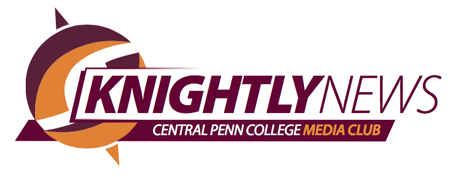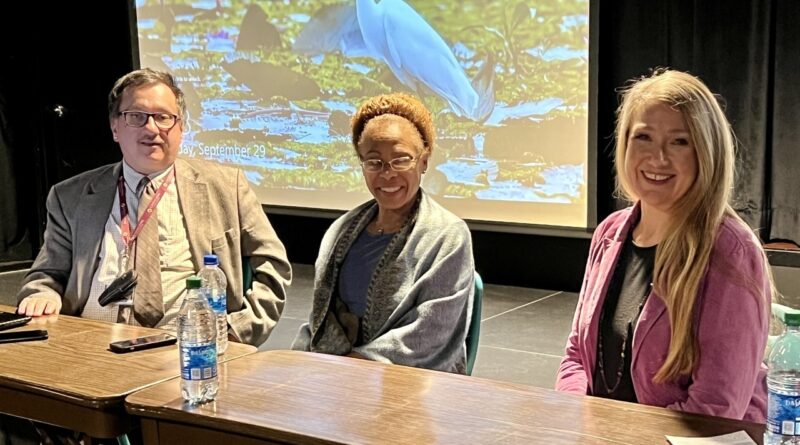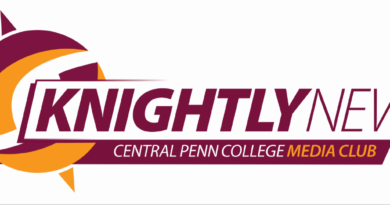Central Penn hosts journalism-ethics forum
Communications faculty member leads presentation on how responsible journalists work
Editor’s note: Michael Lear-Olimpi, Knightly News co-adviser and blog editor, who was the presenter at the event and led the discussion, wrote this story.
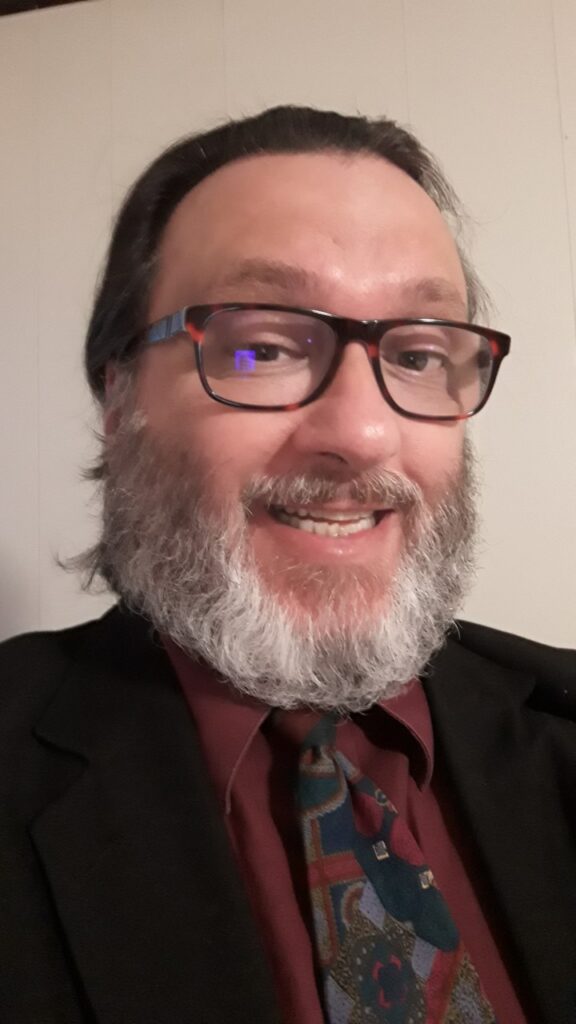
By Michael Lear-Olimpi
Knightly News Co-adviser and Blog Editor
michaellear-olimpi@centralpenn.edu
The Capital Blue Cross Theatre served as the studio for a presentation Thursday night on how journalists work ethically.
The program, “Doing it right: Producing ethical journalism,” was designed to provide the public with insights to what journalists do and how they are accountable to the public they serve.
The program was presented by the Keystone Pro Chapter of the Society of Professional Journalists (SPJ), which serves Pennsylvania journalists and the public from just east of Pittsburgh to the Delaware River.
Michael Lear-Olimpi, Central Penn College assistant professor of communications and media ethicist, who is president of the Keystone Pro Chapter and a member of SPJ’s Professional Standards and Ethics Committee, was the presenter and led the discussion.
Joyce Davis, opinion editor of PennLive/The Patriot-News, and Karen Hendricks, freelance writer, and marketing and public relations specialist, and owner of Hendricks Communications, joined him.
Technical problems with the primarily online program made it impossible to determine how many people tuned in, but some commented during the presentation, which began at 6 p.m. and ended at 8.
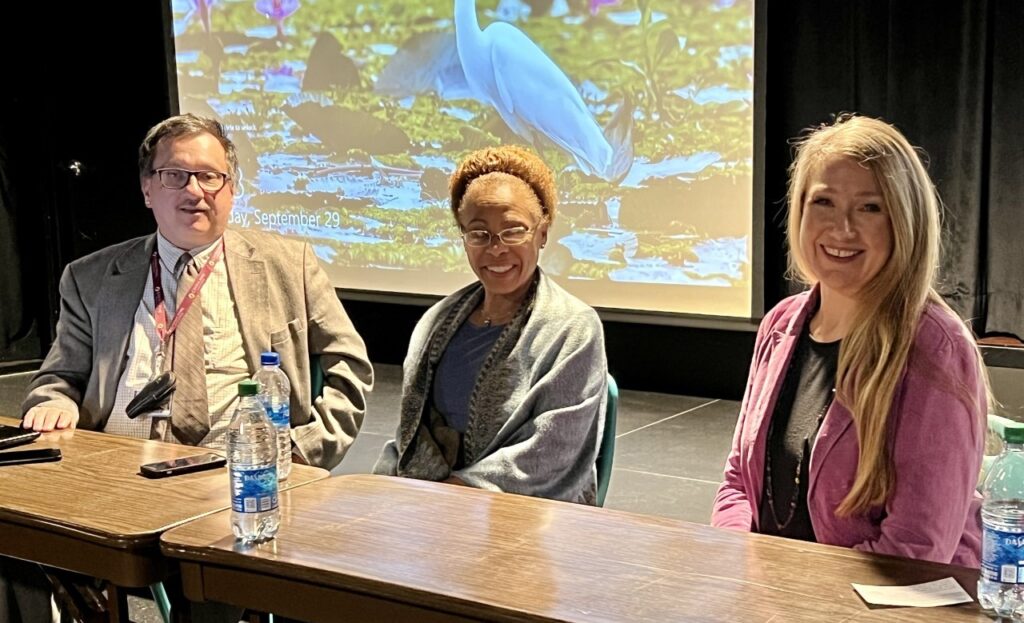
Guiding document
The main source of information guiding the panel’s discussion was SPJ’s Code of Ethics, which is used by most news outlets, is followed by trusted journalists and is the document many journalism organizations use to craft their own ethics codes.
The four pillars of the code, which according to SPJ was created in 1973 after the organization – then called Sigma Delta Chi – borrowed a code in 1926 from the American Society of Newspaper Editors, are that journalists should:
- Seek truth and report it
- Minimize harm
- Act independently
- Be accountable and transparent
SPJ’s code was revised in 1984, 1987, 1996 and 2014 to address issues in the evolution of journalism.

Accountability and transparency
Being accountable and transparent, particularly during election campaigns, was a large portion of Thursday’s discussion.
“I had this issue with one guy, who said, ‘I got this from Fox News,’” Davis said of someone who wrote a letter to the editor for her to publish. “I said, ‘Okay, Fox News can be fine – just send me the link.’ It’s just that when someone challenges you, I have to be able to say, ‘There’s the source.’”
The same applies to journalists, as some of Lear-Olimpi’s PowerPoint slides (an updated presentation created several years ago by the then-titled SPJ Ethics Committee) stated: Ethical journalists attribute information to reliable, authoritative sources – and identify them, unless anonymity is promised to protect the source from retribution for talking to the media about a significant public issue.
They should also check information they gather, and not have personal or other connections to information sources they use that might compromise their independence.
They should always strive to be fair and to include in stories voices of people in communities affected by the stories they report.
“We should cite our sources, and not be afraid to admit that we made a mistake,” Hendricks added. “Sometimes, … we make mistakes, as much as we try to verify, and if that happens, we should print corrections, admit mistakes and correct any errors that are inadvertently made.”
Points and practices to ponder
The panelists stressed that informing the public of what elected officials are doing so the public can govern itself and help society maintain a high quality of life and lawfulness is of paramount importance, but that the other parts of SPJ’s code are critically important to producing ethical and trusted journalism.
They also pointed out that many professions and trades have their own codes of ethics and codes of conduct, but that journalism is unique as the only U.S. profession or trade singled out in the Bill of Rights for special protection from government interference or restraint – freedom of the press, the guarantee of which is enshrined in The First Amendment. In that spirit, journalism organizations do not typically act as “ethics police,” but encourage journalists to practice their craft ethically as they serve the public. Lear-Olimpi explained that the SPJ code cannot be enforced through legal means, but legal remedies, such as filing defamation lawsuits, are available to people who believe they were wronged by journalists.
The panelists acknowledged that many people complain journalism’s revelation of details of some people’s lives – usually those of public officials or public figures – is often negative and can harm those people emotionally or otherwise.
Lear-Olimpi pointed out that truth often hurts people who have lied, or committed crimes or other wrongs, that affect the public, and that affect the people to whom they are close or with whom they are associated.
“Even when journalism is practiced ethically, often some harm will be done,” he said.
Comment or story idea? Contact KnightlyEditors@CentralPenn.Edu.
